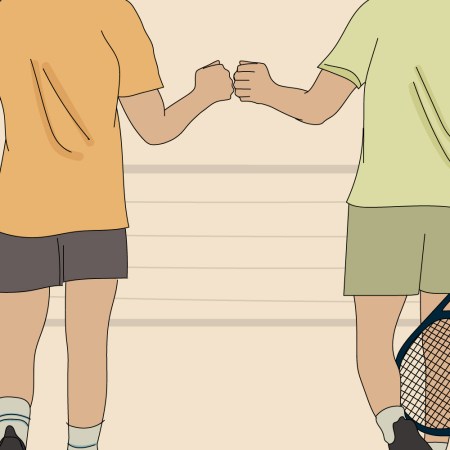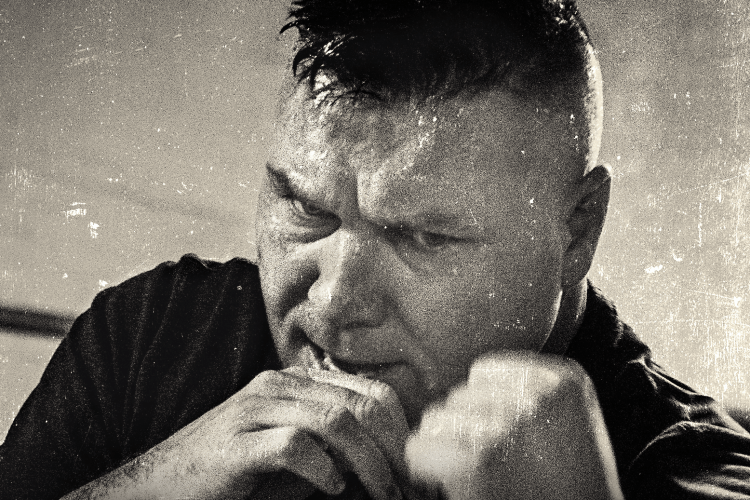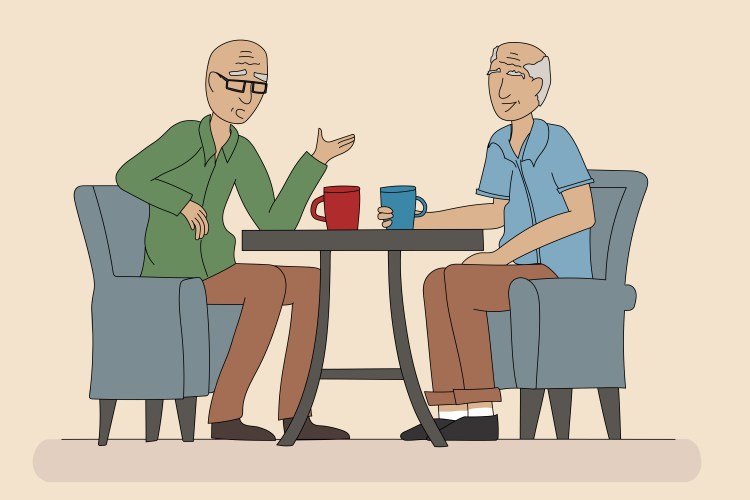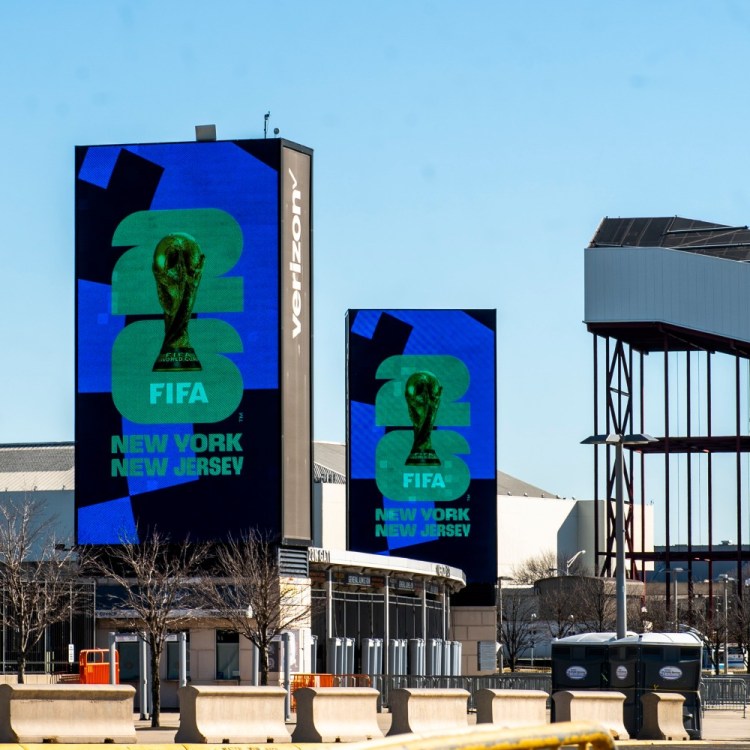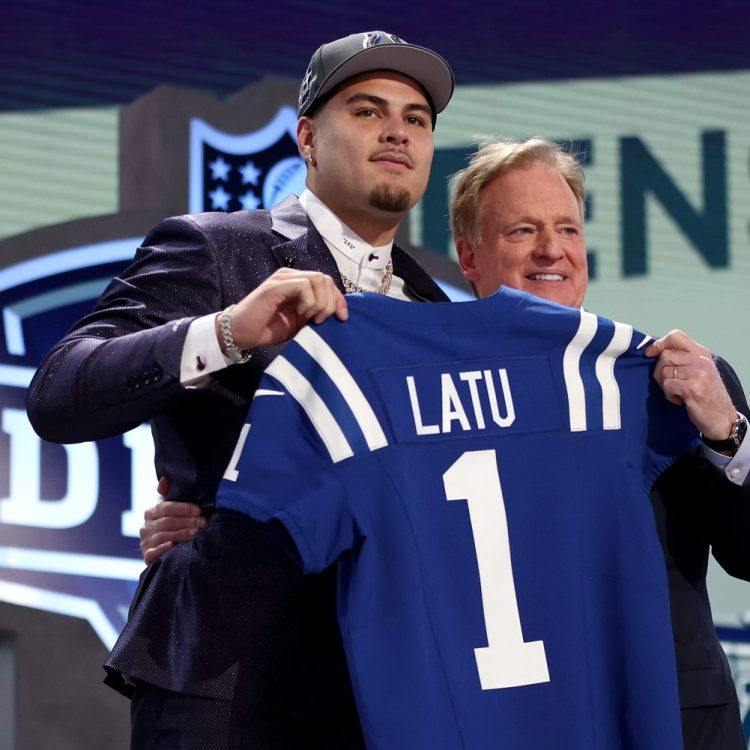With so much turmoil surrounding the Rio Olympics, we really needed this hug.
We’re talking world no. 1 Novak Djokovic, who — after a shocking first-round upset at the hands of Argentine Juan Martin Del Potro — delivered one the first great acts of pure, unbridled sportsmanship of the Olympics by giving his opponent a big old, sweat, teary-eyed embrace.
Here’s the thing: we shouldn’t be at all surprised by it. Male professional athletes have always been good at the whole post-game camaraderie thing. And we’ve got a new study to prove it.
Published this week in the Current Biology journal, Joyce Benenson and Richard Wrangham of the Harvard University Department of Human Evolutionary Biology found that chimps were more likely to reconcile with another male chimp after fierce competition than females of the same species.
To apply their curiosity to humans, the two analyzed hundreds of YouTube videos from four different sports arenas — court tennis, table tennis, boxing and badminton — taking place in 44 different countries from around the world. Placing their focus on the immediate interaction between opponents after a competition, the researchers’ goal was to identify the differentiating ways that men and women engage physically after the final buzzer.
The conclusion: men are quicker — and far more likely — to engage in reconciliatory physical contact post-match. “Our results indicate that unrelated human males are more predisposed than females to invest in a behavior, post-conflict affiliation, that is expected to facilitate future intragroup cooperation,” said Benenson. “This finding feels very counterintuitive because we have social science and evolutionary biology models that tell us males are much more competitive and aggressive.”
The findings lend validity to the “male warrior hypothesis,” a thought that males intentionally exert warm feelings post-conflict, repairing relationships quickly and creating allies for the benefit of the group as a whole. On the other hand, evolutionary thought points to females focusing more on the family and keeping just a close few allies.
The results are intended to extend well beyond the world of sport. “What we’re talking about is women having a harder time when they have to compete with other women,” Benenson stated. “Studies have shown that when two females compete in the workplace they feel much more damaged afterward. I think this is something human resources professionals should be aware of, so they can mitigate it.”
Hug it out, team.
Hug it out.
This article was featured in the InsideHook newsletter. Sign up now.


